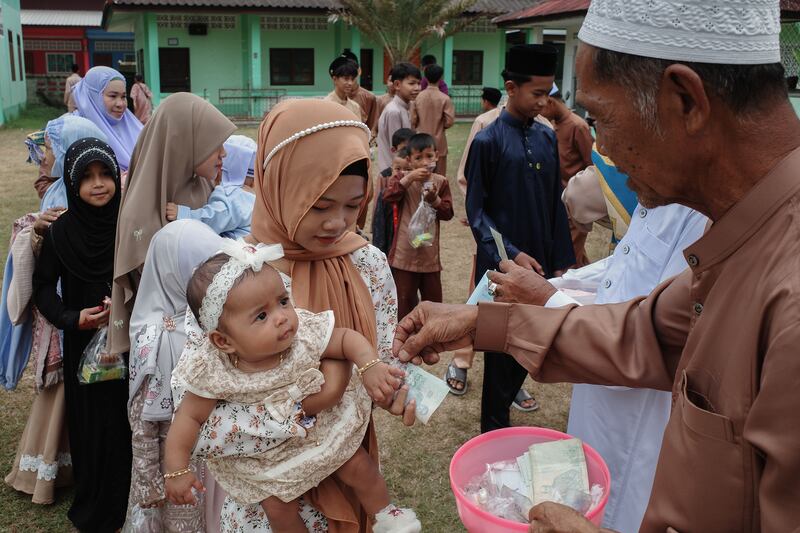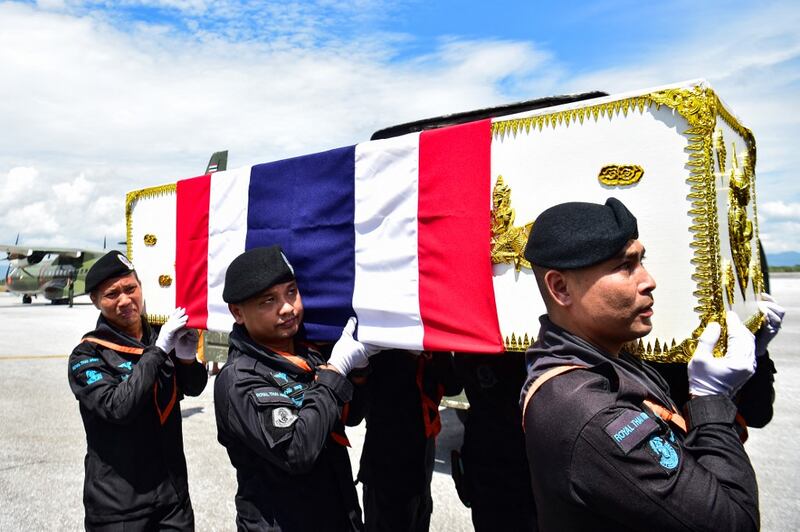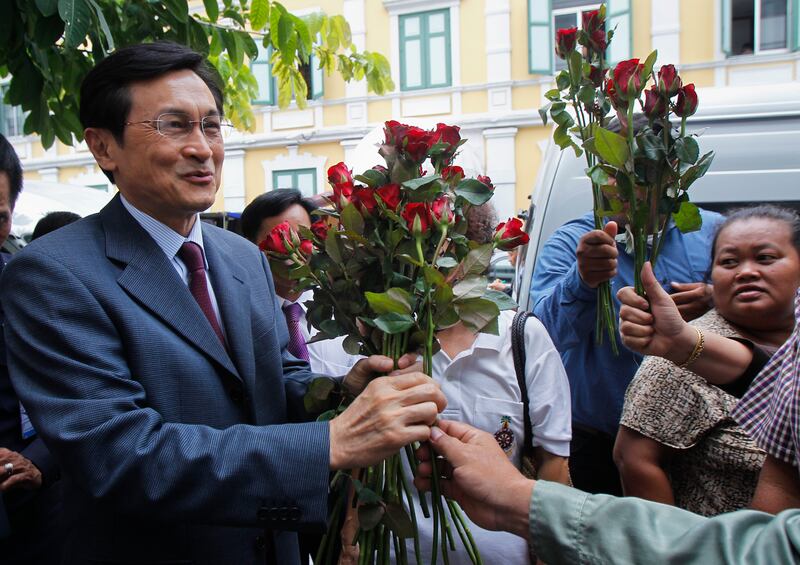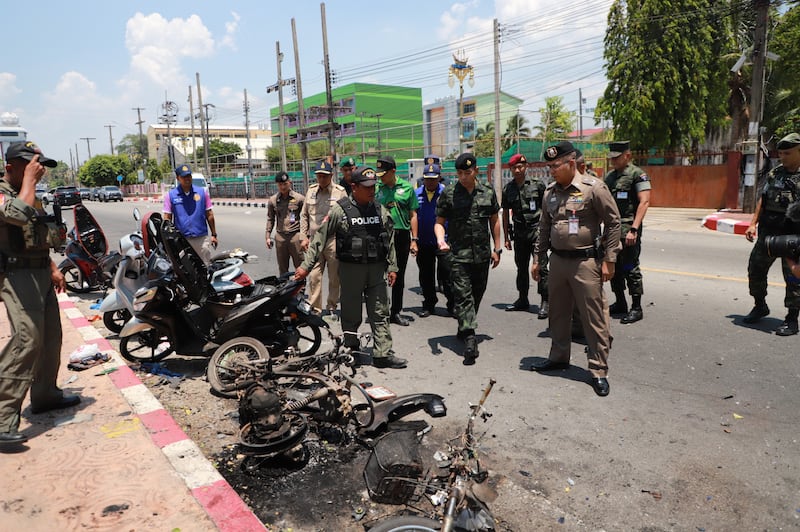As it nears its conclusion, a parliamentary ad-hoc committee tasked with exploring ways to enhance the southern Thailand peace process is soon expected to submit some bold recommendations, including to confront thorny issues at the heart of the insurgency.
After extensive consultations with conflict experts and key stakeholders, including a meeting in Malaysia with negotiators representing the Barisan Nasional Revolusi (BRN) rebels, the committee will submit its recommendations to Parliament for review next month before it will likely be disbanded.
The committee, which was set up by Thailand's new legislature, was also tasked with providing recommendations on improving the public consultation process – a platform for residents of the Muslim-majority and historically contested far South to engage with Thai and BRN negotiators.
Some members of the 35-member ad-hoc committee – particularly those with progressive views – are expected to advocate for moving the peace talks beyond confidence-building measures (CBMs) and taking up topics that go to the root causes of the decades-old conflict.
However, such a call for substantial changes may face resistance as some bureaucrats, including a few on the committee, are inclined to maintain Thailand’s highly centralized structure. They are wary of granting the far South any special status that could set a precedent for other regions.

BRN, a longstanding Patani Malay armed separatist group that controls virtually all of the combatants in the field, commenced direct talks with Thailand's Peace Dialogue Panel in January 2020. The negotiation process has been challenging, with disagreements between the Thai army and BRN over the preferred approach.
While some progress has been made, there are underlying tensions about the legitimacy of the negotiations and political motives behind violence in the southern border region.
For one, the process from the start didn’t have the full endorsement of the army, which still preferred using military means to quell the insurgency.
Thai political elites and the army have never liked the idea of talking to the separatists, and see this as unnecessarily legitimizing the BRN. They prefer not to acknowledge the political underpinnings of the violence in the southern border region.

BRN combatants, on the other hand, have wondered if independence is still part of the movement’s goal now that their political leaders have agreed to negotiate under the Thai constitution.
The movement’s leaders will rely on the public consultations to sort this matter out. If the constituency wants independence, so be it.
Combatants, meanwhile, are not letting up on their campaign of violence. More than ever, attacks have become an essential part of the rebels’ political messaging.
The increase in violent incidents is the highest in the past six years, and the intense nature of some of these high-profile, often coordinated, and simultaneous attacks involve scores of operatives and at times, last up to 30 minutes. Targets include security units patrolling the region and government installations in towns and cities.
This is a far cry from the usual roadside bombing followed by a three-minute gunfight before retreating into the woods.
Besides the increase in violence, the reaction to a leaked copy of the Joint Comprehensive Plan Towards Peace ( JCPP) reflects the fragility of the peace process.
The usual talking heads came out to voice their opinion but it was comments by Surachart Bamnrungsuk, a faculty member of the Department of International Relations at Chulalongkorn University, that rubbed many people the wrong way. He had remarked that the Peace Dialogue Panel was going about it the wrong way, and he asked whether the Thai negotiators were exceeding their mandate with this so-called road map for peace.
The document, leaked by the BRN, contained specific points about reducing violence; it also talked about a timeline for releasing detainees, as well as guidelines for ceasefire monitoring.
The JCPP was not a political statement in itself, but critics of the peace process could not bring themselves to see it any other way. For many Thai policy makers and conservative elites, everything in the Malay-speaking far South, and every dealing with the BRN is in essence political.

The ad hoc committee for the far South is headed by veteran lawmaker Chaturon Chaisang, who is well respected by the Malay Muslims in Thailand’s far South.
When he served as education minister two decades ago, Chaturon urged the government to support local identity and grant the Malays greater cultural space as a way to bridge the trust gap between the state and the local population.
His recommendations were quickly shot down by the army.
Today, Chaturon is no longer a cabinet minister and does not have the kind of pull that he used to have with the government or the party. No one is expecting a significant breakthrough because it’s still not clear what kind of concessions the government is willing to give to the Patani Malays.
Moreover, the three-month at a time mandate given to his ad hoc committee wasn’t much of a mandate to begin with, considering that the conflict resurged 20 years ago and that more than 7,500 people have died from insurgency-related violence since then.
Committee members are a mixed bag of people, including people who advocate for serious moves to empower the Malay-speaking region so that the locals can fully embrace their cultural-religious identity and narrative. And then there are those who believe the far South can come to terms with the state if the government improves its deliverables on goods and services.

Government officials, in general, continue to cling to the long-standing policy of assimilation – enhancing Thainess among the Melayu without understanding that, for the Muslims in this historically contested region, their Islamic religion and their Malay identity are inseparable.
Moreover, there doesn’t seem to be much interest among the lawmakers, including those who sit on this ad hoc committee. Many appeared to have better things to do than coming to the committee’s meetings.
In the final analysis, no matter how bold their recommendations may be, it is essentially up to Parliament and the government to act on the committee’s recommendations.
Given the political climate of the day, combined with the lack of interest by the current crop of lawmakers and the mindset of the army and political elites who are not willing to make serious concessions to the Patani Malays beyond minor administrative adjustments, political violence in the far South will go on as usual.
Don Pathan is a Thailand-based security analyst who works on conflict and insurgency in the Southeast Asia region. The views expressed here are his own and do not reflect the position of BenarNews.
